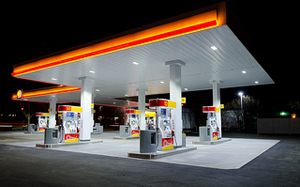
"Yet for all its environmental piety, Norway is also a prodigious polluter. Its greenhouse-gas emissions have grown 15 per cent since it adopted the carbon tax." -- The Economist, Jan. 2009
British Columbia's unique carbon tax on gasoline and other fuels went up another 1.1 cents a litre Sunday, but it remains an expensive, ineffective and unpopular failure.
While the BC Liberal government is attempting to make the proverbial silk purse from a sow's ear, the reality is that North America's only carbon tax is not reducing vehicle fuel consumption.
Nor is it helping improve the environment, since every cent of the $1.17 billion in tax revenue raised this year goes to corporate and personal tax cuts -- not to fund a single environmentally-friendly program like public transit, energy efficiency or conservation.
Statistics Canada figures show what happened. In 2008 -- the carbon tax's first year -- B.C. motor gasoline sales were 4,529.8 in thousands of cubic metres.
In 2011 they totaled 4,536.8 thousand cubic metres.
Gas sales went up, not down, under the carbon tax, despite a tough economic recession that reduced consumption.
Hardly environmental
Nonetheless, B.C. Environment Minister Terry Lake claims success, arguing that greenhouse gas emissions have dropped 4.5 per cent between 2007 and 2010.
But even Lake doesn't deny that two-thirds of the GHG drop was "likely attributable" to the economic downturn, not the impact of the carbon tax.
B.C.'s stated goal is a 33 per cent GHG reduction by 2020 -- and Lake admits that will be "challenging" to meet.
Mark Jaccard, a Simon Fraser University environmental economics professor who strongly supports the carbon tax, says it will take 20 years to determine if it works.
"It would be shocking if a carbon tax had made a difference in a couple of years and it hasn't," Jaccard says.
It would also be shocking if the BC Liberals admitted their own hypocrisy and either fixed or scrapped the carbon tax, which remains highly controversial.
While paying lip service to environmental concerns, this government's biggest single capital expenditure is building a new $3.3 billion, 10-lane Port Mann Bridge that will dramatically increase vehicle traffic -- while scrapping the old bridge despite an estimated remaining lifespan of up to 50 years, according to an engineer who designed and supervised its construction.
(Award-winning Dutch engineer Gerrit Hardenberg told the Journal of Commerce this year that the existing Port Mann Bridge should have been twinned, at a cost for the second bridge of less than $200 million.)
And the government claims it wants to reduce GHG emissions, but last month declared fossil fuel natural gas which it previously condemned as "dirty" is now "clean" -- in order to power up to six multi-billion dollar liquefied natural gas plants for exports to Asia.
B.C.'s greenhouse gas emissions in 2009 were 66.9 million tons. Fugitive emissions from LNG extraction alone will produce 54 to 110 MTs a year, according to the B.C. Sustainable Energy Association.
Putting every British Columbia driver into a Smart Car or Prius or tripling the carbon tax wouldn't make up for all the GHGs those LNG bad boys will be responsible for, between extraction, liquefaction, export and consumption.
Wan support
What's more, a poll released by the pro-carbon tax Pembina Institute in 2011 found that 51 per cent of British Columbians did not want the carbon tax to continue increasing each year, while just 29 per cent did, with 21 per cent not sure.
That may be a reflection of how unfair the regressive carbon tax is, since those with lower income pay proportionally more of their budget on gas and fuel than upper income earners.
And northern B.C. residents who don't have access to public transit have no choice but to pay higher gas and fuel prices to get around and to stay warm.
There's also the Norway example, where despite introducing a substantial carbon tax in 1991, GHG emissions had jumped 15 per cent by 2008.
"Norwegians, who already pay nearly $10 a gallon, took the tax in stride, buying more cars and driving them more," the Wall Street Journal reported. In B.C. terms, using current regular gas prices of about $1.35 a litre in Vancouver, the Norwegian price today is about $2.65 a litre, with six per cent of that its carbon tax component.
Whether you want to scrap the carbon tax, keep increasing it or fix it will be the subject of a B.C. government review, where you can let Finance Minister Kevin Falcon know how you feel until Aug. 31.
So don't count on this government making the carbon tax disappear or using the revenue for anything that would actually help reduce fuel consumption anytime soon. ![]()
Read more: Politics, Environment
















Tyee Commenting Guidelines
Comments that violate guidelines risk being deleted, and violations may result in a temporary or permanent user ban. Maintain the spirit of good conversation to stay in the discussion.
*Please note The Tyee is not a forum for spreading misinformation about COVID-19, denying its existence or minimizing its risk to public health.
Do:
Do not: